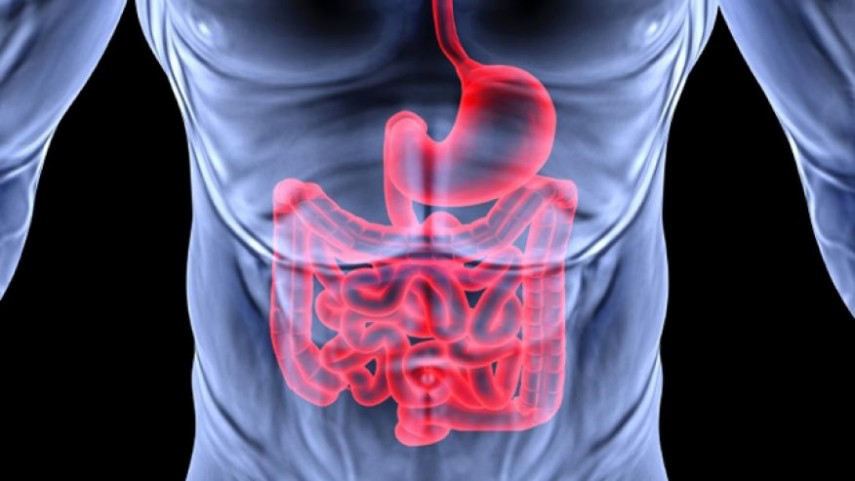|
A digestion byproduct derived from high-fat animal products and previously found to increase the risk of heart disease has now also been linked to chronic kidney disease (CKD), according to a study published Thursday in the journal Circulation.
Researchers at the Cleveland Clinic observed that elevated levels of Trimethylamine N-oxide (TMAO) in a person's blood helped predict whether he or she would develop CKD. In a separate part of the study, using animals, researchers found that a TMAO-rich diet debilitated mice's kidneys and, as the compound accumulated, expedited the development of CKD and heart disease.
"What this suggests to us is that this pathway that makes TMAO is both a mediator of cardiovascular disease and now appears to be a mediator in the development of CKD," lead study author Stanley Hazen, chair of the department of molecular medicine at the Lerner Research Institute at the Cleveland Clinic, told FoxNews.com. "But it's also linked to the heightened cardiovascular disease risk if they have kidney disease. It's a spiraling kind of thing: The worse the kidney function gets, the higher the TMAO gets."
TMAO is formed when the digestive system metabolizes foods like red meat, veal and egg yolk. Previous research has linked TMAO to atherosclerosis, a disease in which cholesterol-rich material accumulates in the arteries. These pockets form plaque, and when plaque breaks apart, heart attack or stroke can occur.
The Centers for Disease Control and Prevention (CDC) estimates that over 20 million Americans have CKD, many of whom are undiagnosed. CKD is caused by a gradual loss in kidney function over time.
Kidneys are involved in excretion? the process of getting rid of metabolites? and previous research has suggested that people with CKD are at a higher risk of heart disease. But traditional risk factors don't adequately account for the excess cardiovascular risk that is observed in subjects with CKD, Hazen said.
"We thought this may explain the excess risk," Hazen said.
Study authors examined TMAO levels in the blood of nearly 4,000 adults and followed them for five years to observe mortality rate. Over the first three years of follow-up, they monitored whether the patients experienced a heart attack or stroke. Researchers also recorded the patients' kidney function at the beginning and end of the study.
When the study began, about 520 study participants were diagnosed with CKD and 3,166 patients were not. People with a history of congenital heart disease or known acute coronary syndromes, and those who had revascularization procedures within 30 days of enrollment were excluded from the study. The analysis also adjusted for traditional risk factors such as age, sex, blood pressure, abnormal cholesterol, smoking and diabetes.
Researchers observed that TMAO levels were highest in patients with CKD. But regardless of whether a patient had been diagnosed with the condition, elevated levels of the compound were still associated with a greater all-cause mortality risk over a five-year period. Stroke and heart attack incidence also correlated with elevated TMAO levels, Hazen noted.
To verify whether dietary habits played a role in CKD risk, study authors studied three groups of mice: one that they fed a control diet, and two other diets that were each enriched with a different compound known to predict CKD. One of those groups ate a diet rich in TMAO, and the other group ate a diet rich in the metabolite choline.
"We were very surprised but also gratified to see that both of those diets led to progressive renal dysfunction," Hazen said.
After analyzing TMAO levels in the mice's blood, researchers also noted that the degree of renal dysfunction and renal fibrosis had a linear relationship with TMAO accumulation.
Researchers studied multiple strains of mice and noted that TMAO affected all of the animals' kidneys? even those among a strain of mice known to be resistant to loss of renal function, Hazen said.
Hazen noted that while a link between dietary-derived TMAO and CKD in animals has been identified, researchers still don't know whether such an association exists in humans. Further study is needed to determine if a diet intervention program in humans is effective in halting TMAO buildup and preventing CKD.
Hazen added that his team's findings are notable because they offer insight into why one person may be more susceptible to chronic diseases than another person.
"These studies help us to understand why there are interindividual differences for risks for developing kidney disease and heart disease," he said.

|
|
붉은 육류를 많이 섭취하면 심혈관질환 위험이 높아지는 것은 이미 알려져 있다.
과거 미국 클리브랜드 클리닉(Cleveland Clinic) 연구진은 붉은 육류에 풍부한 L-카르니틴(carnitine) 성분이 대사과정에서 소화관에 서식하는 특정 박테리아에 의해 죽상경화증을 촉진하는 Trimethylamine-N-oxide(TMAO)로 전환된다는 사실을 밝혀낸 바 있다.
최근 미국 클리브랜드 클리닉(Cleveland Clinic)의 Stanley Hazen 박사는 TMAO가 심혈관질환(cardiovascular disease) 뿐만 아니라 만성신질환(chronic kidney disease, CKD)과 관련이 있음을 발표하였다.
Stanley Hazen 박사 연구팀은 약 4,000명을 대상으로 혈중 TMAO 수준을 조사하였으며, 5년 동안 사망률을 추적 관찰하였다. 또한 연구팀은 처음 3년 동안 환자들의 심근경색 또는 뇌졸증의 발생을 모니터링 하였으며, 연구 시작과 종결 시점에 신장 기능을 확인하였다.
본 연구팀이 연구를 시작할 당시 만성신질환 환자가 521명이었으며, 선천적인 심질환 환자이거나 알려진 급성관동맥증후군(acute coronary syndrome)이 있는 자, 연구 시작 30일 전에 혈관재생술(revascularization)을 받은 자도 제외하였다.
연구팀이 5년 동안에 걸쳐 만성신질환 환자에서 혈중 TMAO 수준과 총 사망률(all-cuase mortality)과의 연관성을 확인한 결과, 만성신질환 환자에서 혈중 TMAO 수준이 높았고, CKD 환자 중에서도 TMAO 수준이 높은 그룹에서 약 2.8배 사망 위험이 높은 것으로 나타났다. 또한 심근경색과 뇌졸증 발생도 TMAO 수준과 상관이 있음을 확인하였다.
연구팀은 또한 만성신질환 환자에서 식습관의 중요성을 확인하기 위해 동물실험을 수행하였다. 총 3가지 그룹으로 일반식이군과 TMAO가 풍부한 식이그룹, 콜린(choline) 함량이 높은 식이그룹으로 나누어 수행한 결과, TMAO와 콜린이 신 기능 장애와 신장 섬유증의 발생에 직접적으로 관여함을 확인하였다.
Stanley Hazen 박사는 장내 미생물에 의한 TMAO는 신 기능 장애와 신장 섬유증 발생에 높은 위험인자이며 사망률과도 상관이 있으며 차후 만성신질환 환자의 예후와 TMAO의 생성을 막을수 있는 식사 프로그램에 대한 연구가 필요함을 시사하였다.
기사원문 |




